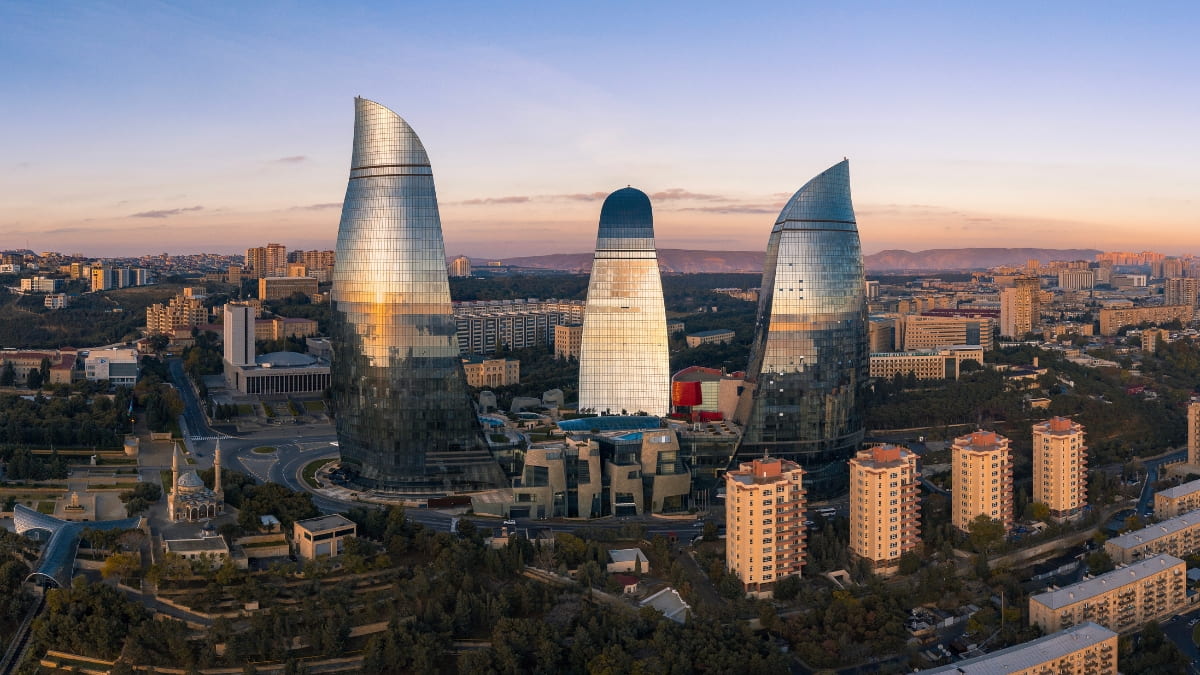Guest blog by Vusal Shikhaliyev, LEG ’23
My journey with “Leading Economic Growth” program started with my strong aspiration to achieve my career goals. I have always deeply believed that strengthening my economic knowledge might facilitate the path to my career goals, which include becoming an expert in the design and evaluation of reform initiatives that lead to economic growth in the country. As such, I can contribute more effectively to the performance of the institution (the Commission on Business Environment and International Rankings) and to the welfare of my country.
Besides this, as the head of the Secretariat of the Commission on Business Environment and International Rankings of the Republic of Azerbaijan, I am a responsible person who participates in designing and monitoring the implementation of economic initiatives that focus on improving the business environment, thereby stimulating economic growth. I always look for innovative ideas and new approaches to further enhance the efficiency of the Secretariat and improve the proper coordination within the Commission.
Taking the aforementioned into account, the Harvard Kennedy School Executive Education Program of Leading Economic Growth was a perfect fit for my professional experience, personal interests, and career goals.
First of all, I would like to highlight the tremendous role of the LEG program in building and developing participants’ capabilities via teaching new methods and approaches and knowledge sharing by creating a rich educational resource basis and an ever-expanding network. The information and concepts we consume are just the first steps in reflecting on the growth challenges. I strongly believe that all participants repeatedly will review and benefit from all course content (readings, videos and etc.), use the PDIA toolkit, the atlas of Economic Complexity and other tools, and approaches with great pleasure for future daily activities.
Thanks to the LEG program, we could improve our capability of using PDIA toolkit and accessing know-how for development, expanding our vision of the importance of team know-how rather than individual know-how, and focusing on missing public goods (public services), and high bandwidth organization.
Moreover, through the LEG program, I fully expanded my understanding of how important it is to have a clear and easily applicable legal framework, user-friendly administrative infrastructure, and public services to enable favorable economic conditions for entrepreneurs which can be the main driver of growth.
Emphasizing the crucial role of high bandwidth organization, I would like to note that the new governance model of our country focusing on improving a business environment fully matches with action-learning oriented iterative approach proposed by our respected professors.
A new governance model to reform design and delivery of citizen- and business-centric public services was introduced upon the initiative of the President of the Republic of Azerbaijan in 2016. Broader aim of this initiative was to create more favorable economic and social opportunities for citizens through establishing a new model that continuously improves the legislative framework and quality of public services in order to create business enabling environment.
To this end, the Government established an institutional framework, comprising 3 components:
- An inter-ministerial group of minister level officials ensures policy-level ownership and sponsorship,
- A collaboration system that (i) convenes government, civil society, and private sector, (ii) ensures that all stakeholders effected by the reforms are heard and (iii) creates an inclusive and collaborative environment to design and push the reforms; and
- A coordination system that (i) enables ownership of all key processes, (ii) enhances stakeholder capabilities and (iii) drives the establishment and improvement of the infrastructure and tools required to run the new model.
In due course, the specific objectives were to create a sustainable institutional framework that learns and improves over time and serves as (1) a collaboration platform that further improves the coordination process across government agencies and layers and (2) an inclusive mechanism facilitating citizen-centric public service design and delivery.
Taking aforementioned into account, it was a grandiose opportunity to compare existing frameworks, approaches, and tools with new approaches and tools provided by the LEG program in order to address economic growth challenges.
From all participants’ perspectives, it should be underlined that formalizing new views as the result of participation in the LEG program, will lead to create a convenient ecosystem equipped with new economic policy tools and with adopted benchmarks in domestic economic development, and parallelly facilitated public-private dialogue.
This is a blog series written by the alumni of the Leading Economic Growth Executive Education Program at the Harvard Kennedy School. 72 Participants successfully completed this 10-week online course in May 2023. These are their learning journey stories.
